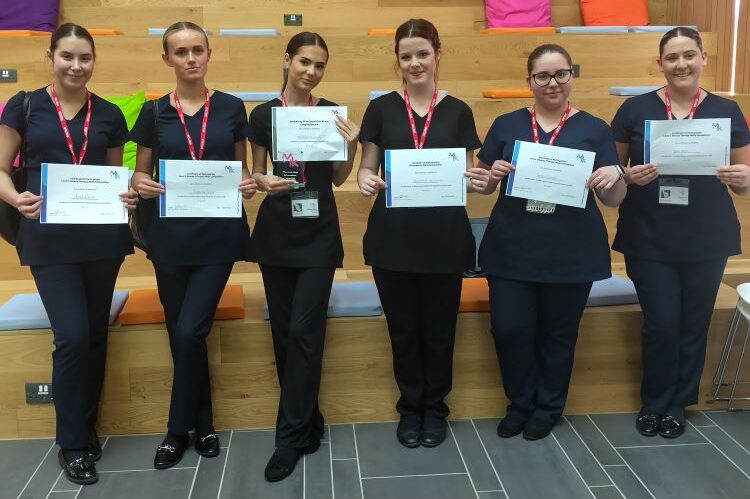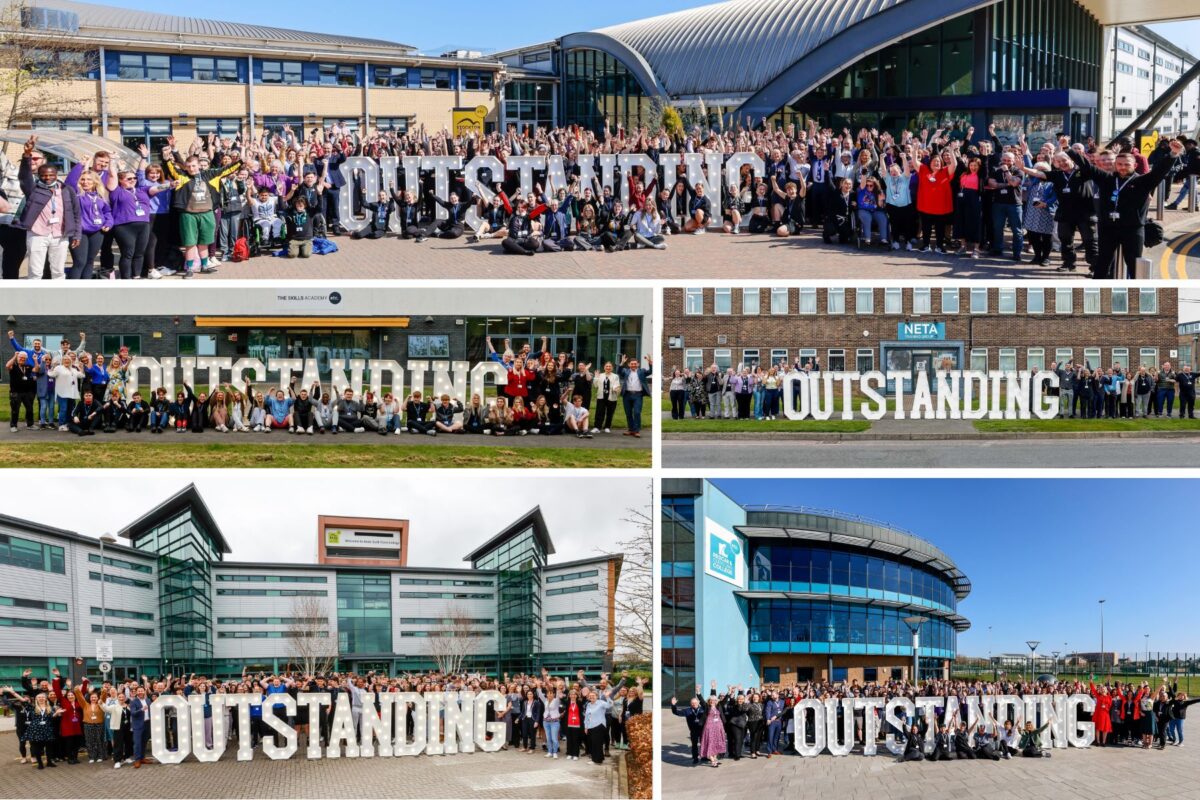Why we must keep on re-committing to inter-sectoral learning if technical education is to thrive

Over the last fifteen years we have been tackling the UK’s productivity puzzle, striving to find solutions that will ensure our country’s future economic, environmental and social prosperity. There is now cause for optimism; the Post 16 Education and Skills Act received royal assent in April and promises to transform the skills and training landscape. Momentum is gathering and the Further Education and Training sector has a central part to play in education and economic recovery.
The great value of collaboration between industry and education sector colleagues has long been recognised, and the extension of employer-led reforms, and opportunities for collaboration across technical education via apprenticeships, T Levels and traineeships, are there to be taken. The huge influence that teachers have on learners through these programmes, whether it be through delivering the courses themselves or via the provision of impartial careers guidance and advice that provides the line of sight to work, is well established.
And the currency and quality of that teaching and advice rests in significant part on inter-sectoral learning; the knowledge transfer and exchange that drives increased skills, productivity, innovation and growth that can occur both through the recruitment of skilled technical professionals into our sector and opportunities for updating from industry provided to teachers and trainers.
We see that in practice in lots of the work the ETF has led in recent years, through programmes that have recruited experienced professionals into the sector such as Further Forces, SET for Teaching Success and Taking Teaching Further, and the support that has allowed teachers and trainers to undertake industry updating activities of various kinds.
A Shortage of Trainers and Teachers with the Technical Skills
The recruitment element of our work has responded to the acknowledged shortage of trainers and teachers with the technical skills that need to be passed on to future generations. SET for Teaching Success has recruited industry experts and graduates, while Further Forces recruited service leavers from the army, navy and air force up to five years after discharge. Taking Teaching Further – currently in its fifth round – is supporting FE and Training sector providers to recruit not just teachers for SET, STEM and wider technical routes, but also the English, maths and SEND teachers that are necessary for the success of our diverse FE and Training sector learners.
This activity has proved a great success. Trainee teachers recruited by the Further Forces programme, for instance, have been found to have not just the ‘industry’ experience so coveted by the sector and its learners, but also a whole host of attributes and qualities including a ‘can-do’ attitude, team working and leadership skills, self-discipline, determination and resilience. The stories of individuals such as Dean Carpenter, Jack Lee, Jesse Jackson and Kevin Lloyd, who have all come to the sector after forces careers, illustrate this well. And those experiences are reflected in the perspective of retired college Principal and former Royal Navy Commodore Campbell Christie CBE, who – seeing things from both viewpoints – understands as well as anyone the value of those transferable skills and their contribution to inter-sectoral working.
The Challenge Ahead of Us
The reason that this matters so much is the challenge ahead of us. If we are to achieve the UK’s ambition to be a leading competitor in the global marketplace, we will need to establish ourselves as a technological superpower. We start from a good position, with a proven ability to translate our scientific capability into productivity, as we saw in the roll out of vaccines to address the Covid-19 pandemic.
But the sheer breadth of the disruptive technological change that is confronting us is truly awesome; robotics, geonomics, automation, smart materials, renewable energies and cloud technologies are just some of the factors in play. Confronting, embracing and exploiting their potential requires us to support the growth of technical skills, something we will achieve by focusing on quality technical education, which in turn brings education and industry closer together.
Those technical advances also shape working practices. That’s why investing in the continuing professional development of subject specialist teachers – supporting them as dual professionals – is crucial. This theory is captured neatly in the TPACK (Technological, Pedagogical and Content Knowledge) model, which sets out what the overlapping of these three spheres of skills and expertise result in and underlines the importance of employers and stakeholders collaborating.
It’s also why the ETF has taken care to embed a diverse range of activities and support to facilitate that collaboration in many of its programmes, including in the support it provides for Apprenticeship Workforce Development and T Level Professional Development. That support comes in different forms involving a broad range of time commitments ranging from just a few hours to many months, and in many instances comes with remission payments to support attendance.
If you are unfamiliar with this activity, a recent example is a group industry placement facilitated by Wellcome Sanger and DLRC that provided insights into genomic research and regulatory affairs. It saw Wellcome Sanger Institute colleagues providing updates on research programmes in fields such as pathogens and microbes, cancer, aging and somatic cell mutation, and microbiotica. DLRC colleagues discussed the regulation of healthcare products worldwide, career journeys and the incredible advancements in medical technology as a result of artificial intelligence. It was facilitated in bite-sized chunks over three days to ensure minimal disruption to teaching and participants had the opportunity to visit the Wellcome Genome Campus. Unsurprisingly, this support proved very popular.
And it’s just one of a countless number of examples of that demonstrate the benefits that can arise from education and industry working together across different contexts. The partnership between Bridgwater and Taunton College and the local NHS Trust, which has established a clear progression route to becoming a registered nurse with a substantial amount of time spent in the workplace, is a case in point. This is clearly a fantastic opportunity for learners, but because it starts to address the skills shortage of registered nurses in the local area, it’s also of significant benefit to the Trust.
Benefits of this Kind of Inter-Sectoral Learning
The benefit to businesses and other organisations of this kind of inter-sectoral learning isn’t just the future workforce of course; working with education and training providers can help them explore contemporary, innovative and effective ways to facilitate the professional updating of their existing staff.
Recognising the symbiotic nature of that relationship and embracing the idea that all parties involved – FE providers, industry and other stakeholders – are learning organisations in an ecosystem is important here. There is a shared responsibility to think about how we operate, what we offer and what is required of, and of course by, the workforce. And that thinking must be done in the context of the United Nations’ sustainable development goals, which remind us that quality education can only be delivered if we are also prioritising objectives such as health and wellbeing, clean air, affordable energy, decent work and economic growth, and the reduction of inequalities.
The truth is inter-sectoral learning isn’t just about the transfer of skills and knowledge from industry into education to learners. That is a start point that begins to enable learners to play their part, but inter-sectoral learning is the key to something much wider; the success, health and prosperity of individuals, businesses and communities that is key to the ‘levelling up’ agenda.
Technical education is of course key to that, and in turn, inter-sectoral learning is key to technical education. It’s a circular relationship in which the ETF looks forward to continuing to play its part, recruiting, supporting and inspiring teachers, trainers and their partners as they learn from one another and create a better future for us all. At this time of opportunity, when much rests on our efforts, that’s a commitment that I know we’ll all share.












Responses